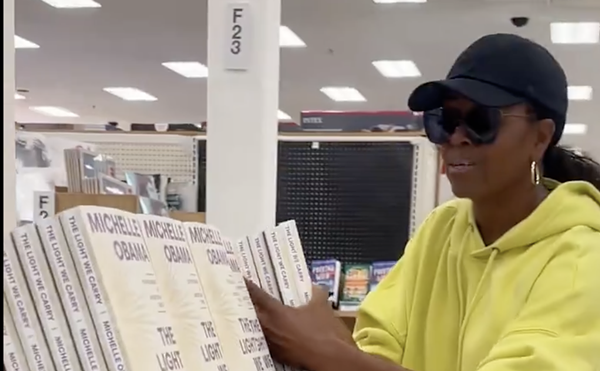Playwright Caitlin McQuade has done a fine job of weaving various source materials into a cohesive and dramatic story that tracks O'Keeffe's artistic phases as well as her relationship with Stieglitz, solidly played by Joneal Joplin. Joplin's Santa-like hairpiece takes a bit of getting used to, but he makes Stieglitz a blend of self-important icon and devoted husband.
From a first meeting so fortuitous it could have come out of Hollywood, O'Keeffe and Stieglitz's lives and art were intertwined. They were both unashamedly outspoken about the power of art and self-expression; Loui and Joplin bring gravity and sincerity to the characters as artists while letting us see them as real people who love and admire each other. "We're 90 percent the same," Stieglitz tells her at one point, and it's not until later that we can see it was a warning; the other 10 percent kept them apart a great deal of the time, she in her beloved New Mexico and he staying in the East for health reasons. O'Keeffe struggles to stay in a committed relationship while being true to herself; even nonartists can relate. Although Georgia's life and sense of purpose were inspiring, Loui and McQuade aren't afraid to present her less sympathetic side, and it makes for a well-rounded portrait of a complex character.
Adding to the evening's success is the fact that Loui and Joplin, and, for the most part, fellow cast members John Flack and Bethany Barr (who are both strong in a variety of roles), have broken with Historyonics tradition and done away with their scripts, allowing the actors to become more involved with their characters and with each other. They only refer to their texts briefly, apparently to get their bearings in the new, ever-evolving play. The play could benefit from cutting; there's plenty of room for condensation, especially in the first act. Sometimes the collagelike structure shows its seams and loses its emotional through-line. After Georgia learns of Alfred's affair, for example, there are seemingly no consequences; in the next scene she's grateful that he's letting her return to New Mexico, with no mention of his infidelity.
There are a few occasions when conflict is manufactured or a jokey tone adopted in attempts to breathe life into static material; these scenes fall flat. Although Dr. Charles Metz's piano accompaniment provides a nice soundtrack, the songs, and the pantomimes that play under them, seem out of place tonally and emotionally, even if one of the numbers is the seldom-heard Arlen and Mercer tune "I Wonder What Became of Me," nicely delivered by Flack. Glenn Dunn's lighting design does a fine job recalling the Southwestern light from O'Keeffe's paintings, slides of which -- as well as of photos of her taken by Stieglitz -- are projected on the rear of Kathi Dunn's set. The slides are well used, illustrating the stages of O'Keeffe's career and giving context to the dramatic scenes.





